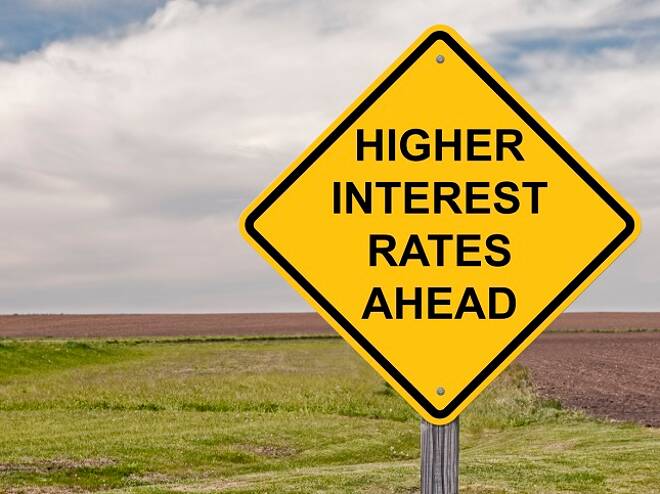Advertisement
Advertisement
Potential Implications of a US December Interest Rate Hike on Global Markets
By:
December is still more than a month away but the effects of the expected interest rate increase are already being felt in other markets.
The prospect of a December rate hike in the US will no doubt leave Forex traders on edge in the next few weeks. The US markets, however, seem unfazed by the looming December rate rise. They are still making their usual new record highs every week, especially after last Wednesday’s release of the Fed minutes which had all the indications of another rate increase at the end of the year.
The Fed’s September minutes strongly suggested the possibility of another rate increase. According to a CMC Markets recent publication, a decline in the unemployment rate as evidenced by payrolls data and an increase in wages pressure did little to diminish the prospect of a rate rise in December.
The statement released by the central bank after a two-day meeting didn’t touch on the December case but the projections just fell short of declaring one more rate increase in 2017. Members of the Federal Open Market Committee (FOMC) normally vote on whether to raise or reduce interest rates when needed. It has been predicted that 11 out of the 16 FOMC policymakers are set to push the rates higher again this year while their four counterparts are optimistic that the rates will hold steady, for the time being.
There are those who hold the opinion that one more rate increase this year is appropriate. The Vice Chairman, Stanley Fischer, will step down in the next few weeks. He submitted his projections in the last meeting but will not be at the next two meetings to vote on his recommendations. Charles Evans, the Chicago Fed President, recently told reporters in Sydney that he was “fine” with increasing US interest rates on December although he preferred to first see how the economy and especially inflation progressed before making a decision.
Effects of the December Rate Increase
December is still more than a month away but the effects of the expected interest rate increase are already being felt in other markets. In the Forex market, the dollar is still on an unstoppable high. After an 11-week high against all the major six currencies, the dollar-dominated gold is still pricier than other currencies.
Global commodities such as gold, oil, and agricultural products are normally priced in US dollars. A dollar strengthened an interest rate hike would, in turn, increase the price of commodities among non-dollar holders. Economies that depend largely on commodity production and natural resources would be adversely affected when their products decline in value and credit streams shrink. For instance, gold prices edged lower last Tuesday as the dollar strengthened ahead of the expected December interest rate increase.
Global Implications
In a scenario where the Fed hikes interest rates while the other central banks lower or maintain their rates, the US will have a more attractive return on savings than other countries. With higher US interest rates, global capital is expected to flow to the US from other countries, which will result in even more appreciation of the dollar.
However, this scenario goes against an economic theory referred to as the interest rate parity. The theory actually has an opposite argument. It states that in a high-interest rate situation, the country’s currency should decline. Raising interest rates in the first place is a response to a poorly performing economy.
Empirical studies, on the other hand, have shown that a high-interest-rate currency does not depreciate as the theory suggests. If we were to follow the theory, then an interest rate increase in December would result in depreciation of the USD but in fact, the higher interest rate may end up resulting in an increased flow of international capital to the US and strengthen the dollar against other currencies.
Dollar-Dominated Debts
Governments and corporate accounts across the globe have huge amounts of dollar-dominated credits. Many borrowers attracted by ultra-low interest rates have taken trillions of dollars in credit that’s specifically tied to the USD. An interest rate spike would render most of these debts unsustainable.
Some analysts have even gone as far as stating that a surplus in dollar-dominated credit caused by a higher interest rate could potentially lead to a global debt crisis. The credit market has been volatile long enough without the hiked interest rates.
Short-term interest rates are key factors in currency valuation. Forex traders are now keeping a close eye on the interest rate scenario in the US as December draws closer. A higher-than-anticipated interest rate increase will be positive or bullish for the USD and will definitely have a significant effect on the currency market.
About the Author
Guestauthor
Advertisement
